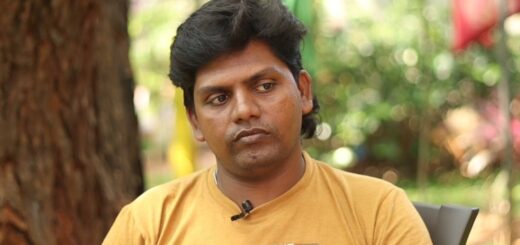Dr. B.R Ambedkar – The Man Behind The World’s Longest Constitution
The word ‘Ambedkar’ carries a particular importance for our society. Surprisingly enough, it means different things to different people. To those who know their civics, he is the architect of our constitution. To the uninformed, he is the person responsible for the caste-based reservation system. To the millions of people who are still voiceless to this day, his name symbolizes power and hope.
But who is he really? Dr. Bhimrao Ramji Ambedkar was born on 14 April 1891 to a teacher and soldier who served in the British Indian Army. Despite all that, his father was known to society as a ‘Dalit’ or untouchable. This is exactly why Ramji Sakpal endured immense hardships to get his son educated. It is from one of his teachers, Krushnaji Keshav Ambedkar, that Bhimrao got his surname. Despite such humble beginnings, he went on to gain a world of education, before becoming the chief architect of the Constitution of the Republic of India: the longest written constitution in the world.
Early Life and Education
Ambedkar’s family belonged to the Mahar caste, which carried an untouchable social status. Discrimination did not stop him from pursuing education through exceptional dedication. Following his graduation from Elphinstone College in Mumbai he obtained degrees from Columbia University in the United States and also at the London School of Economics and Gray’s Inn to become a qualified barrister. His growing understanding of democratic values and progressive cultures from Western societies made him more determined to reform Indian society.
National prominence began for Ambedkar as he became active within the Congress Party.
At the beginning of his activist career Dr. Ambedkar focused on securing rights for Dalits which he named the “Depressed Classes.” His public declarations along with his leadership abilities and written documents, made him a national figure, especially throughout the 1920s and 1930s. His clear advocacy of social justice alongside rights equality attracted numerous supporters while drawing key congress leaders to pay attention.
Although Dr. Ambedkar shared multiple ideological differences with the Congress leadership about Dalits receiving separate electorates, he contributed significantly to India’s emerging political framework through his intellectual talents and legal skills. Because of his intellectual gifts and support from marginalized communities, the Congress administration, led by an interim government, invited Ambedkar to become India’s first Law Minister.
Architect of the Indian Constitution
Permanent worldwide recognition came to Dr. Ambedkar because of his role as Chairman of the Drafting Committee in the Constituent Assembly. India, under his stewardship, delivered one of the most thorough and modern constitutional frameworks worldwide.
The Indian Constitution Article 17 established “untouchability” as illegal while establishing a religiously neutral democratic nation along with strict legal protection against caste-based discrimination. The new framework of the constitution contained affirmative programs that arranged educational spots and work options together with voting opportunities specifically for Scheduled Castes and Scheduled Tribes to realize social justice principles for modern governments.
Legacy and Impact
Through his composition of our constitution, Dr. Ambedkar established the essential basis for an India that accepts and honors each resident. His actions produced protective systems to guarantee the rights of populations that suffered historical discrimination. The book “Annihilation of Caste” maintains its eternal value by providing valuable direction to today’s political and social discussions.
The present-day Indian nation recognizes Dr. Ambedkar’s leadership role through multiple forms of national recognition. The public identifies Dr. Ambedkar as the liberator of Dalits and carries connections to both fundamental social principles of liberty and equity and fraternity. On April 14th India celebrates Ambedkar Jayanti as the birthday tribute to Dr. Ambedkar while Indian people commonly refer to him as the “Father of the Indian Constitution.”
Conclusion
From his beginnings as an underprivileged youngster in an impoverished Indian community, Dr. B.R. Ambedkar rose to constitutional leader, thanks to his unyielding determination synchronized with intellectual strength dedicated to social equity. Through his leadership, millions of people strive to establish a society based on equality encompassing all members without discrimination
–Written by Amna
–Edited by Rupam Shukla




